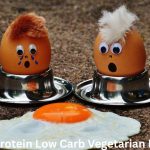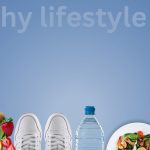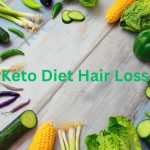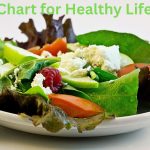Welcome to Healthy Diet Balance, your trusted global resource for nutrition and wellness!
If you are searching for a healthy diet plan for weight gain to build muscle or achieve a balanced physique, this helpful guide is designed for you.
Whether you are from the USA, Europe, Asia, or beyond, we will provide a detailed, science-backed diet plan, practical tips, and insights to help you create a healthy diet plan for weight gain in 2025.
This unique article offers fresh perspectives to support your goals.
Let’s dive into your healthy diet plan for weight gain!
Why a Healthy Diet Plan for Weight Gain Is Crucial
Gaining weight healthily is just as important as losing it, yet it’s often overlooked.
The World Health Organization (WHO) notes that undernutrition affects over 400 million people globally, and many struggle to gain weight due to fast metabolism, medical conditions, or poor dietary habits.
A healthy diet plan for weight gain ensures you add mass through nutrient-dense foods, not empty calories, reducing risks like diabetes or heart disease.
This guide offers a fresh approach to weight gain, tailored for diverse global lifestyles.
Global Need for Weight Gain
From athletes in the USA aiming for muscle mass to individuals in Africa recovering from undernutrition,
A healthy diet plan for weight gain adapts to varied needs with cultural relevance.
Engaging Start: Your Weight Gain Journey
Imagine feeling stronger and more confident– what’s your weight gain goal? Share in the comments, and let’s get started together!
The Science Behind a Healthy Diet Plan for Weight Gain
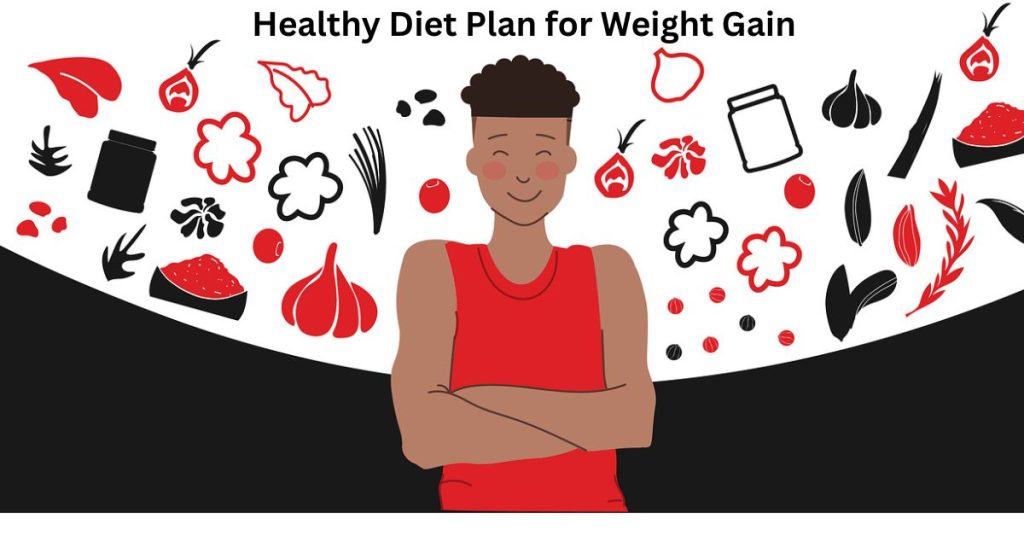
Let’s break down the science of a healthy diet plan for weight gain, drawing from research by the National Institutes of Health (NIH) and other sources.
How Weight Gain Works
Caloric Surplus: To gain weight, consume 250-500 calories more than your maintenance level daily (e.g., 2000 kcal maintenance + 500 kcal = 2500 kcal), per the NIH.
Macronutrient Balance: 40-50% carbs, 20-30% protein, 20-30% fats for optimal growth (USDA).
Muscle vs. Fat: Pairing diet with strength training ensures 60-70% of weight gain is muscle, not fat, per a 2023 Journal of Sports Science study.
Key Nutrients for Weight Gain
Protein: 1.6-2.2 g/kg body weight (e.g., 96-132 g for a 60 kg person) to build muscle (American College of Sports Medicine).
Carbs: Fuel workouts and replenish glycogen– aim for 4-7 g/kg body weight (e.g., 240-420 g for 60 kg).
Fats: Support hormones like testosterone for muscle growth– include healthy fats like avocado and nuts.
Micronutrients: Zinc (11 mg/day) and magnesium (400 mg/day) aid recovery (NIH).
Scientific Evidence.
Muscle Growth: A 2022 Journal of Nutrition study found a 500 kcal surplus with strength training led to 0.5-1 kg muscle gain per month.
Energy Boost: High-carb diets improve energy by 15%, supporting active lifestyles (Harvard Health).
Health Benefits: Nutrient-dense diets reduce inflammation by 20%, per the European Journal of Clinical Nutrition.
Benefits of a Healthy Diet Plan for Weight Gain
A healthy diet plan for weight gain offers transformative benefits:
Muscle Growth: Gain 0.5-1 kg of lean mass monthly with proper nutrition and exercise (NIH).
Improved Energy: Balanced meals prevent fatigue, boosting daily performance.
Better Immunity: Nutrient-rich foods strengthen immunity by 15% (WHO).
Enhanced Confidence:Achieving a balanced physique improves self-esteem, per a 2023 Psychology of Sport study.
Reduced Health Risks: Avoids empty calories, lowering diabetes risk by 25% (American Diabetes Association).
Cultural Impact:
In India, protein-rich lentils help underweight individuals, while in the USA, high-calorie smoothies support athletes.
Engaging Tip: Picture your strongest self– what benefit excites you most? Share below!
Challenges of Following a Healthy Diet Plan for Weight Gain
Despite its benefits, challenges exist:
Appetite: Some struggle to eat enough– high metabolism burns 200-300 extra calories daily (NIH).
Time: Preparing calorie-dense meals can be time-consuming.
Cost: Nutrient-rich foods may cost 20% more than processed options (USDA).
Consistency: Maintaining a surplus during busy schedules is tough.
Engaging Tip: Faced a weight gain challenge? Tell us how you overcame it!
How to Create a Healthy Diet Plan for Weight Gain
Let’s build your healthy diet plan for weight gain with these steps.
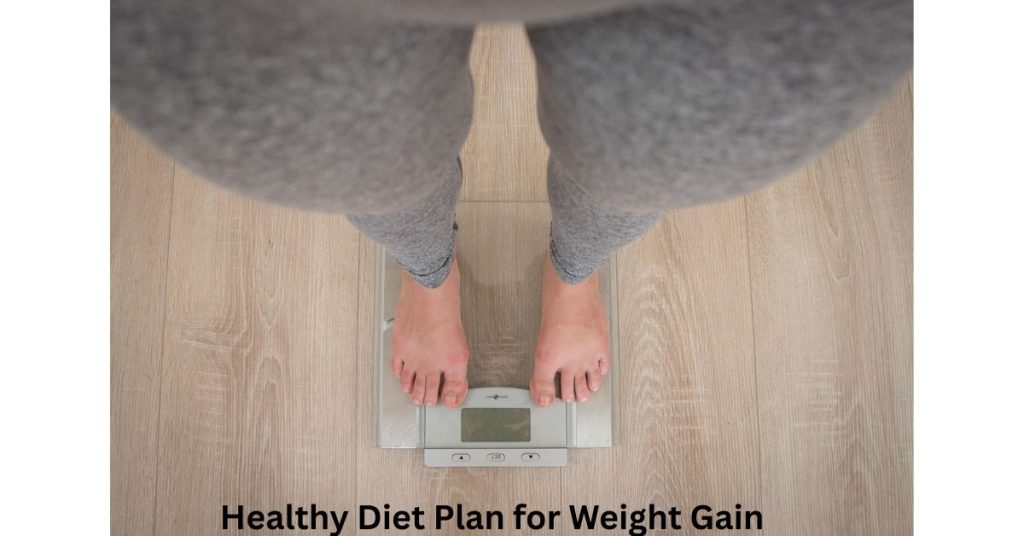
Step 1: Assess Your Needs
Goals: Muscle gain, overall mass, or recovery?
Current Intake: Track calories for a week to find your baseline.
Health Check: Consult a doctor if you have underlying conditions.
Step 2: Design Your Plan
Calorie Target: Add 250-500 kcal to your maintenance (e.g., 2500 kcal for a 2000 kcal baseline).
Macros: 40% carbs (250 g), 25% protein (150 g), 35% fats (100 g) for 2500 kcal.
Meal Frequency: 5-6 meals/day to hit calorie goals.
Step 3: Sample Daily Plan
Breakfast (600-700 kcal): Oatmeal with peanut butter, banana, and milk.
Snack 1 (300-400 kcal): Greek yogurt with honey and nuts.
Lunch (800-900 kcal): Grilled chicken with sweet potato and avocado.
Snack 2 (300-400 kcal): Smoothie (banana, protein powder, almond milk).
Dinner (600-700 kcal): Salmon with quinoa and broccoli.
Snack 3 (200-300 kcal): Cheese and whole-grain crackers.
Step 4: Support with Lifestyle
Strength Training: 3-4 sessions/week targeting major muscle groups.
Sleep: 7-9 hours/night to aid recovery (NIH).
Hydration: 3-4 liters/day to support digestion.
Engaging Tip: Try a “Weight Gain Week”– share your Day 1 on (@healthydietbalance)!
7-Day Healthy Diet Plan for Weight Gain
Here is a unique healthy diet plan for weight gain, with global flavors . Calorie counts are approximate, targeting 2500-3000 kcal/day.
Day 1
Breakfast: Oatmeal with peanut butter, banana, and milk (700 kcal, 30 g protein).
Snack 1: Greek yogurt with honey and almonds (350 kcal, 15 g protein).
Lunch: Grilled chicken with sweet potato and avocado (850 kcal, 40 g protein).
Snack 2: Smoothie (banana, protein powder, almond milk) (400 kcal, 20 g protein).
Dinner: Salmon with quinoa and broccoli (700 kcal, 35 g protein).
Snack 3: Cheese and whole-grain crackers (250 kcal, 10 g protein).
Total: | 3300 kcal, 150 g protein.
Day 2
Breakfast: Scrambled eggs with avocado and whole-grain toast (650 kcal, 25 g protein).
Snack 1: Trail mix (nuts, seeds, dried fruit) (400 kcal, 10 g protein).
Lunch: Beef stir-fry with rice and veggies (900 kcal, 45 g protein).
Snack 2: Protein bar and banana (350 kcal, 15 g protein).
Dinner: Tuna with couscous and spinach (700 kcal, 40 g protein).
Snack 3: Milk with granola (300 kcal, 10 g protein).
Total: | 3300 kcal, 145 g protein.
Day 3
Breakfast: Smoothie (banana, oats, peanut butter, milk) (700 kcal, 25 g protein).
Snack 1: Cottage cheese with pineapple (350 kcal, 20 g protein).
Lunch: Turkey with quinoa and kale (850 kcal, 40 g protein).
Snack 2: Almonds and dried apricots (400 kcal, 10 g protein).
Dinner: Grilled fish with brown rice and asparagus (700 kcal, 35 g protein).
Snack 3: Yogurt with chia seeds (250 kcal, 10 g protein).
Total: | 3250 kcal, 140 g protein.
Day 4
Breakfast: Whole-grain pancakes with almond butter and berries (650 kcal, 20 g protein).
Snack 1: Protein shake with milk (350 kcal, 25 g protein).
Lunch: Chicken with sweet potato and green beans (900 kcal, 45 g protein).
Snack 2: Cheese sticks and apple (400 kcal, 15 g protein).
Dinner: Lamb with couscous and zucchini (700 kcal, 35 g protein).
Snack 3: Nuts and raisins (300 kcal, 5 g protein).
Total: | 3300 kcal, 145 g protein.
Day 5
Breakfast: Eggs with avocado and whole-grain bread (700 kcal, 30 g protein).
Snack 1: Smoothie (mango, protein powder, milk) (350 kcal, 20 g protein).
Lunch: Salmon with rice and spinach (850 kcal, 40 g protein).
Snack 2: Trail mix (nuts, seeds) (400 kcal, 10 g protein).
Dinner: Beef with quinoa and broccoli (700 kcal, 35 g protein).
Snack 3: Greek yogurt with granola (250 kcal, 15 g protein).
Total: | 3250 kcal, 150 g protein.
Day 6
Breakfast: Oatmeal with walnuts, banana, and milk (650 kcal, 20 g protein).
Snack 1: Cottage cheese with peach slices (350 kcal, 20 g protein).
Lunch: Grilled fish with sweet potato and kale (900 kcal, 40 g protein).
Snack 2: Protein bar and orange (400 kcal, 15 g protein).
Dinner: Chicken with brown rice and asparagus (700 kcal, 35 g protein).
Snack 3: Milk with granola (300 kcal, 10 g protein).
Total: | 3300 kcal, 140 g protein.
Day 7
Breakfast: Smoothie (berries, oats, peanut butter, milk) (700 kcal, 25 g protein).
Snack 1: Almonds and dried cranberries (350 kcal, 10 g protein).
Lunch: Turkey with quinoa and mixed veggies (850 kcal, 40 g protein).
Snack 2: Cheese and whole-grain crackers (400 kcal, 15 g protein).
Dinner: Grilled fish with couscous and spinach (700 kcal, 35 g protein).
Snack 3: Yogurt with chia seeds (250 kcal, 10 g protein).
Total: | 3250 kcal, 135 g protein.
Customization Tips
Increase portions if you’re more active.
Add calorie-dense foods (e.g., nut butter) to hit targets.
Include cultural staples (e.g., lentils in India).
Engaging Tip: Start this plan and share your Day 1 on HEALTHY DIET BALANCE with #WeightGainJourney!
Common Myths About a Healthy Diet Plan for Weight Gain
Let’s debunk myths:
Myth 1: You Should Eat Junk Food
Fact: Empty calories lead to fat gain, not muscle (NIH).
Myth 2: Weight Gain Is Only for Bodybuilders
Fact: Anyone can benefit, from athletes to underweight individuals.
Myth 3: You Don’t Need Exercise
Fact: Strength training ensures muscle gain (Harvard Health).
Engaging Tip: Heard a weight gain myth? Share it below!
Practical Tips for a Healthy Diet Plan for Weight Gain
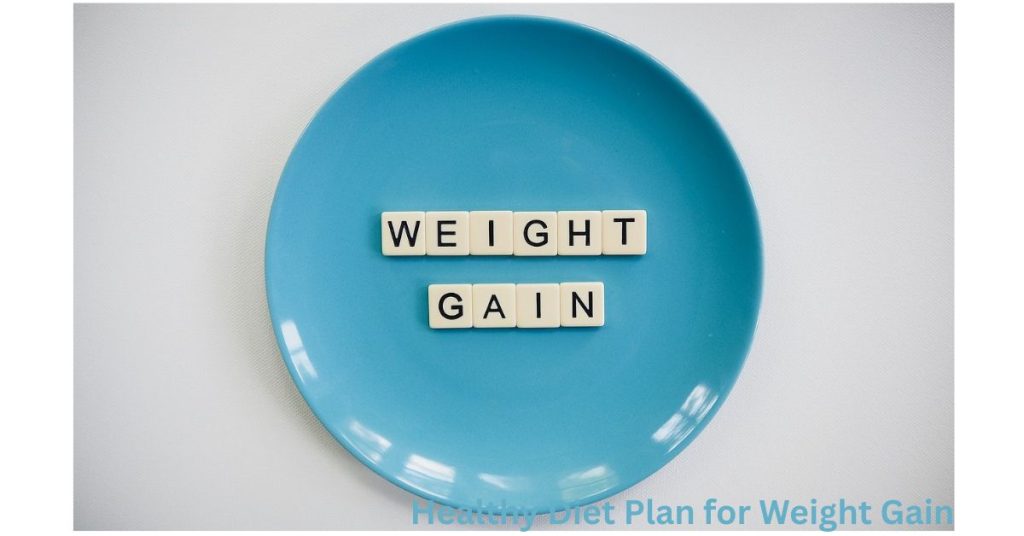
Meal Prep: Cook in batches (e.g., rice, chicken) for the week.
Calorie–Dense Foods: Add nut butters, oils, and seeds to meals.
Track Progress: Use MyFitnessPal to log calories and macros.
Stay Consistent: Eat every 2-3 hours to hit calorie goals.
Monitor Weight: Weigh weekly– aim for 0.5-1 kg gain/month.
Expert Insight
Dr. Anil Gupta, a nutritionist with 15 years of experience, says, “A healthy diet plan for weight gain is about quality calories– focus on nutrient density and consistency.”
Healthy Diet Plan for Weight Gain and Technology in 2025
Tech supports your journey:
Apps: MyFitnessPal for tracking, Fitbit for activity.
Smart Tools: Smart scales to monitor progress.
Online Support: Join weight gain communities on facebook.
Engaging Tip: Share your favorite health app in the comments!
FAQs on Healthy Diet Plan for Weight Gain
Q: How long to see results?
A: 4-6 weeks with consistency.
Q: Can I gain weight without exercise?
A: Yes, but exercise ensures muscle gain over fat.
Q: How many calories should I add?
A: Start with 250-500 kcal above maintenance.
Conclusion: Start Your Healthy Diet Plan for Weight Gain
A healthy diet plan for weight gain empowers you to achieve your goals in 2025.
At Healthy Diet Balance, we’re here with expert-backed plans and engaging content. Begin with our 7-day plan, share your progress, and thrive globally.
Visit us for more, and follow us on HEALTHY DIET BALANCE…


